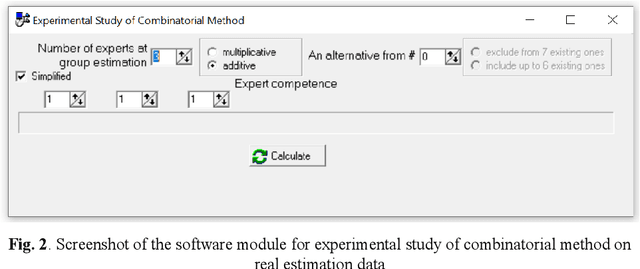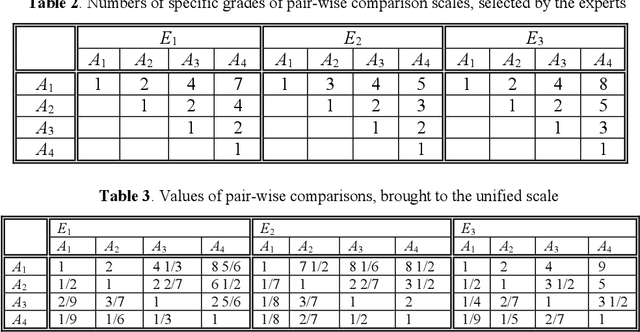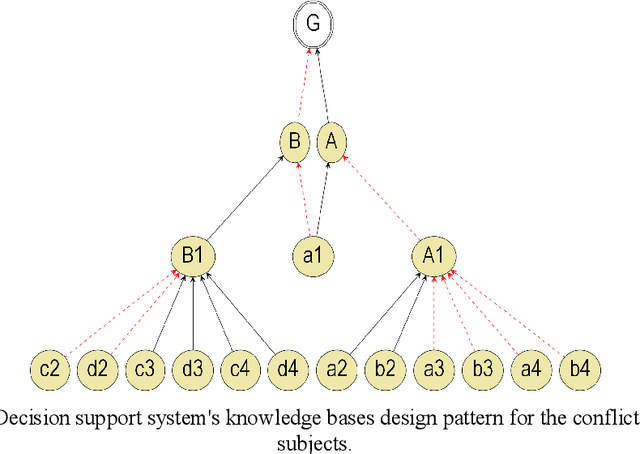Vitaliy Tsyganok
Comparing Efficiency of Expert Data Aggregation Methods
Nov 09, 2019



Abstract:Expert estimation of objects takes place when there are no benchmark values of object weights, but these weights still have to be defined. That is why it is problematic to define the efficiency of expert estimation methods. We propose to define efficiency of such methods based on stability of their results under perturbations of input data. We compare two modifications of combinatorial method of expert data aggregation (spanning tree enumeration). Using the example of these two methods, we illustrate two approaches to efficiency evaluation. The first approach is based on usage of real data, obtained through estimation of a set of model objects by a group of experts. The second approach is based on simulation of the whole expert examination cycle (including expert estimates). During evaluation of efficiency of the two listed modifications of combinatorial expert data aggregation method the simulation-based approach proved more robust and credible. Our experimental study confirms that if weights of spanning trees are taken into consideration, the results of combinatorial data aggregation method become more stable. So, weighted spanning tree enumeration method has an advantage over non-weighted method (and, consequently, over logarithmic least squares and row geometric mean methods).
Usage of Decision Support Systems for Conflicts Modelling during Information Operations Recognition
Apr 16, 2019
Abstract:Application of decision support systems for conflict modeling in information operations recognition is presented. An information operation is considered as a complex weakly structured system. The model of conflict between two subjects is proposed based on the second-order rank reflexive model. The method is described for construction of the design pattern for knowledge bases of decision support systems. In the talk, the methodology is proposed for using of decision support systems for modeling of conflicts in information operations recognition based on the use of expert knowledge and content monitoring.
 Add to Chrome
Add to Chrome Add to Firefox
Add to Firefox Add to Edge
Add to Edge